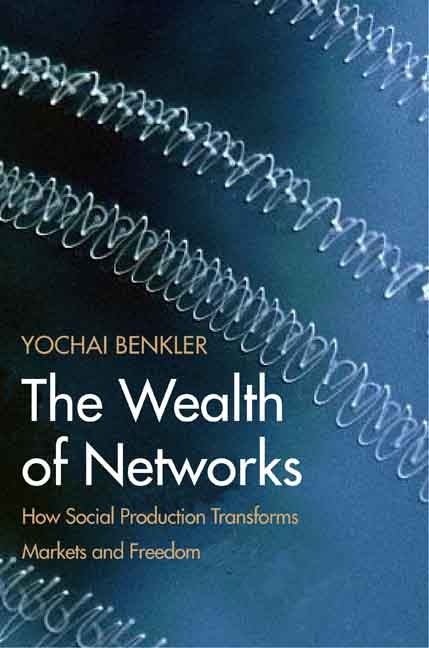Alexander R. Galloway: Protocol: How Control Exists After Decentralization (2004)
Filed under book | Tags: · code, control society, decentralization, internet, network culture

“Is the Internet a vast arena of unrestricted communication and freely exchanged information or a regulated, highly structured virtual bureaucracy? In Protocol, Alexander Galloway argues that the founding principle of the Net is control, not freedom, and that the controlling power lies in the technical protocols that make network connections (and disconnections) possible. He does this by treating the computer as a textual medium that is based on a technological language, code. Code, he argues, can be subject to the same kind of cultural and literary analysis as any natural language; computer languages have their own syntax, grammar, communities, and cultures. Instead of relying on established theoretical approaches, Galloway finds a new way to write about digital media, drawing on his backgrounds in computer programming and critical theory. “Discipline-hopping is a necessity when it comes to complicated socio-technical topics like protocol,” he writes in the preface.
Galloway begins by examining the types of protocols that exist, including TCP/IP, DNS, and HTML. He then looks at examples of resistance and subversion—hackers, viruses, cyberfeminism, Internet art—which he views as emblematic of the larger transformations now taking place within digital culture. Written for a nontechnical audience, Protocol serves as a necessary counterpoint to the wildly utopian visions of the Net that were so widespread in earlier days.”
Publisher MIT Press, 2004
ISBN 0262072475, 9780262072472
260 pages
Review: Jason Lesko (RCCS, 2005).
PDF (updated 2021-12-16)
Comment (1)Understanding New Media: Augmented Knowledge & Culture
Filed under book | Tags: · network culture, new media, theory
This book outlines the development currently underway in the technology of new media and looks further to examine the unforeseen effects of this phenomenon on our culture, our philosophies, and our spiritual outlook. The digital revolution is something fundamentally different from simply the introduction of yet another medium to our culture: it marks a paradigm shift in our relation to all media, to all our senses, all our expressions. The new media are transforming our definitions of culture and knowledge and transcending barriers in ways that will have lasting implications for generations to come.
Understanding New Media: Augmented Knowledge & Culture
By Kim H. Veltman
Edition: illustrated
Published by University of Calgary Press, 2006
ISBN 1552381544, 9781552381540
689 pages
preview
Yochai Benkler: The Wealth of Networks: How Social Production Transforms Markets and Freedom (2006)
Filed under book | Tags: · law, mass collaboration, network culture, new media, politics, social production

“With the radical changes in information production that the Internet has introduced, we stand at an important moment of transition, says Yochai Benkler in this thought-provoking book. The phenomenon he describes as social production is reshaping markets, while at the same time offering new opportunities to enhance individual freedom, cultural diversity, political discourse, and justice. But these results are by no means inevitable: a systematic campaign to protect the entrenched industrial information economy of the last century threatens the promise of today’s emerging networked information environment.
In this comprehensive social theory of the Internet and the networked information economy, Benkler describes how patterns of information, knowledge, and cultural production are changing—and shows that the way information and knowledge are made available can either limit or enlarge the ways people can create and express themselves. He describes the range of legal and policy choices that confront us and maintains that there is much to be gained—or lost—by the decisions we make today.”
Publisher Yale University Press, 2006
ISBN 0300110561, 9780300110562
515 pages
Book website
Mastodon
Publisher

